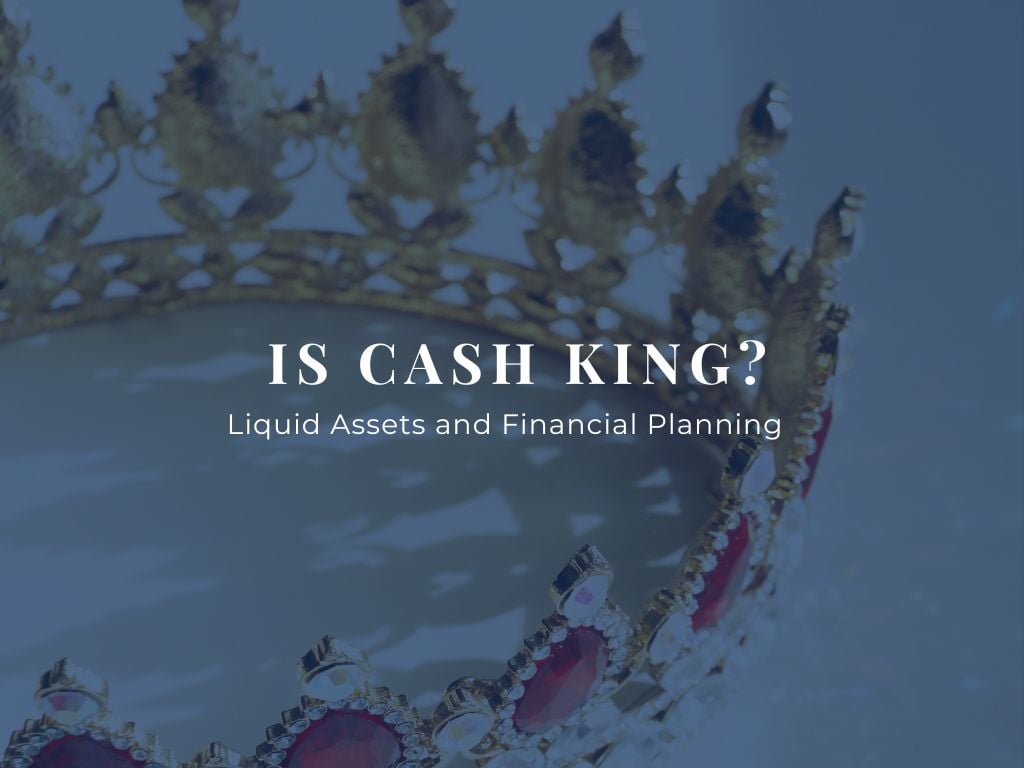
When it comes to years when both stocks and bonds see poor performance, investors may begin to wonder if it’s better to have their money in liquid assets such as cash, as opposed to investments such as bonds and stocks. In other words, is cash king? Let’s see.
Purchasing Power and Inflation
While cash may feel like a “safe” option for your money, the problem is that when you factor in inflation, keeping your money in cash can give you less purchasing power, which is defined by Investopedia as “the amount of goods and services that can be purchased by a given unit of currency, taking into account the effect of inflation.” In other words, keeping all your money in cash means that, in terms of purchasing power, you’re likely losing money over the long-term.
When annual inflation hits 9 percent, as it did in 2022, this loss of purchasing power becomes far more notable from year to year, but that doesn’t mean it’s not also having an impact when annual inflation is closer to two or three percent. It’s the power of compounding that makes the difference. For example, between 2000 and 2020, the average annual rate of inflation was only 2.06 percent. From year to year this difference is fairly minimal, but it quickly adds up. If you had $100 in 2000, you would need $150 to have the same amount of purchasing power in 2020, an increase of 50 percent.
Opportunity Cost and Investing
The good news is that compounding also applies to your investments, which brings us to our next point: the opportunity cost of cash. The opportunity cost is all the options you potentially miss out on when making a choice. Specifically, the more you have in cash, the less you have invested in other assets, such as stocks and bonds, and the less opportunity you have not only for your investments to grow, but for that growth to compound.
Just like with inflation, the potential power of compounding is huge, especially when considered over a longer time horizon, such as with retirement assets. This is one of the reasons it is highly recommended that you avoid touching your retirement savings prior to retirement. Beyond the penalties many accounts charge for early withdrawals, even if you were to put the exact same amount of money back later, you could still end up with less in the long run. That’s because not only did your money potentially miss out on a chance to grow, but that missed growth also no longer has the opportunity to compound.
Trying to Time the Market
At this point, an obvious-seeming solution may have arisen: Why not liquidate your assets when the market is bad, avoid the drawdown and then reinvest when the market begins to go back up? In theory, this would allow you to avoid a major loss of purchasing power and allow you to benefit from your investments compounding. This is referred to as trying to time the market.
The problem is that trying to time the market typically backfires. Essentially, timing the market is an attempt to predict the future, which is incredibly difficult, if not entirely futile. When most investors see a drawdown, they tend to panic and pull their money out, converting it to the “safer” feeling option of cash. They then wait until they see the market trending upwards and reinvest. The issue is that investors who do this, are buying high and selling low; the exact opposite of what you want to do with your investments. It’s natural to feel fearful – either of losing more money during a drawdown or of missing out on the upside – but fear should not rule your investment strategy. A long-term strategy that accounts for the naturally cyclical nature of the market will typically work better than trying to predict the future.
How Much Should You Have in Liquid Assets?
Thus far, we have a few issues with the concept that cash is king, but that doesn’t mean cash is bad. Each person is unique, and their financial plan should be, too, and that includes how liquid assets factor in. For example, an investor planning to buy a house in the coming year may wish to have enough to cover a down payment in an incredibly low-risk investment vehicle, such as a money market fund, or even in cash. In this instance, missing out on the opportunity to grow that money may be preferable to having a downturn that leaves them with too little to cover a down payment.
On the other hand, a young investor in their 20s who must decide between keeping their money in cash and investing it in a retirement savings account, would likely miss out on a massive amount of compound interest that their savings could earn.
Of course, it is wise to set money aside in an emergency fund. A helpful rule of thumb is having three to six months of living expenses in cash; however, everyone’s financial needs are different, and your fund should reflect your unique circumstances.
The Takeaway
Cash probably isn’t king, but that doesn’t mean you should discount it entirely. Have questions about financial planning? Contact us to start creating your strategy for the future.
Additional Resources:
Investopedia.com, "Understanding Purchasing Power and the Consumer Price Index"
Data.worldbank.org, "Inflation, Consumer Prices"
Bloomberg.com, "Tempted to Time the Market? Look at These Charts First"
Investor.gov, "Beginners’ Guide to Asset Allocation, Diversification, and Rebalancing"
Need a Financial Advisor?
If you are currently looking for help with financial planning, contact us. We are happy to schedule an introductory meeting at your convenience.


